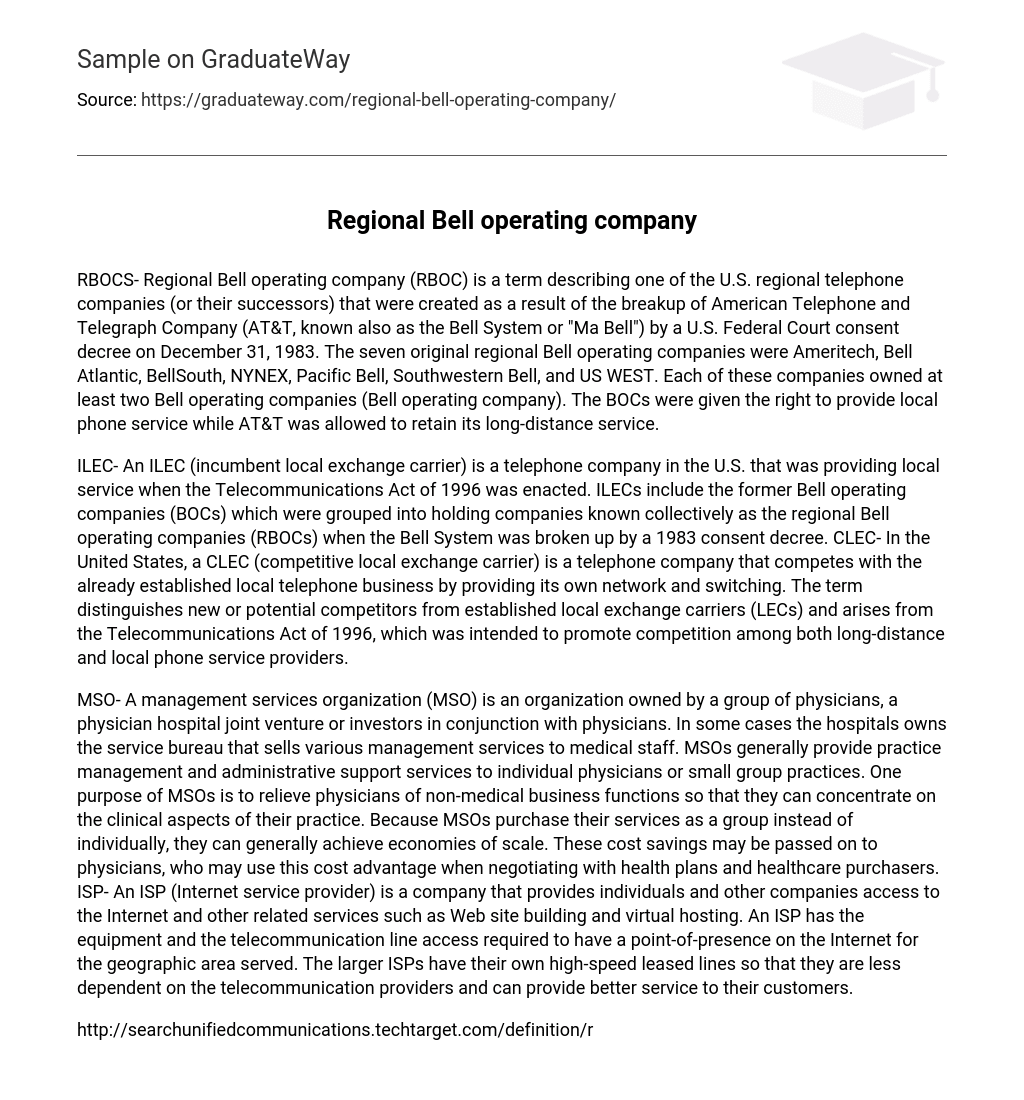RBOCS- Regional Bell operating company (RBOC) is a term describing one of the U.S. regional telephone companies (or their successors) that were created as a result of the breakup of American Telephone and Telegraph Company (AT&T, known also as the Bell System or “Ma Bell”) by a U.S. Federal Court consent decree on December 31, 1983. The seven original regional Bell operating companies were Ameritech, Bell Atlantic, BellSouth, NYNEX, Pacific Bell, Southwestern Bell, and US WEST. Each of these companies owned at least two Bell operating companies (Bell operating company). The BOCs were given the right to provide local phone service while AT&T was allowed to retain its long-distance service.
ILEC- An ILEC (incumbent local exchange carrier) is a telephone company in the U.S. that was providing local service when the Telecommunications Act of 1996 was enacted. ILECs include the former Bell operating companies (BOCs) which were grouped into holding companies known collectively as the regional Bell operating companies (RBOCs) when the Bell System was broken up by a 1983 consent decree. CLEC- In the United States, a CLEC (competitive local exchange carrier) is a telephone company that competes with the already established local telephone business by providing its own network and switching. The term distinguishes new or potential competitors from established local exchange carriers (LECs) and arises from the Telecommunications Act of 1996, which was intended to promote competition among both long-distance and local phone service providers.
MSO- A management services organization (MSO) is an organization owned by a group of physicians, a physician hospital joint venture or investors in conjunction with physicians. In some cases the hospitals owns the service bureau that sells various management services to medical staff. MSOs generally provide practice management and administrative support services to individual physicians or small group practices. One purpose of MSOs is to relieve physicians of non-medical business functions so that they can concentrate on the clinical aspects of their practice. Because MSOs purchase their services as a group instead of individually, they can generally achieve economies of scale. These cost savings may be passed on to physicians, who may use this cost advantage when negotiating with health plans and healthcare purchasers. ISP- An ISP (Internet service provider) is a company that provides individuals and other companies access to the Internet and other related services such as Web site building and virtual hosting. An ISP has the equipment and the telecommunication line access required to have a point-of-presence on the Internet for the geographic area served. The larger ISPs have their own high-speed leased lines so that they are less dependent on the telecommunication providers and can provide better service to their customers.
http://searchunifiedcommunications.techtarget.com/definition/regional-Bell-operating-company http://searchunifiedcommunications.techtarget.com/definition/ILEC http://searchunifiedcommunications.techtarget.com/definition/CLEC http://en.wikipedia.org/wiki/Management_services_organization http://searchwindevelopment.techtarget.com/definition/ISP





